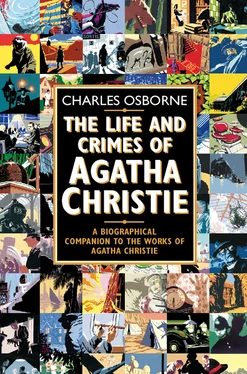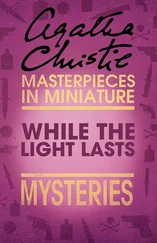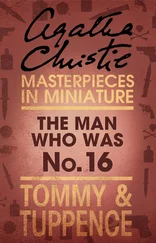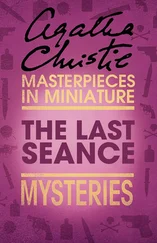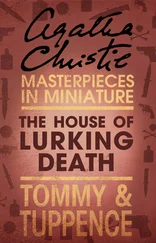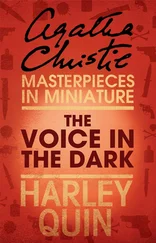The mandatory racial slurs occur in The Secret of Chimneys, though apparently they have been edited out of more recent American editions. ‘Dagos will be dagos’, ‘Like all dagos, he couldn’t swim’, and other remarks are cheerfully exchanged, and of course all references to Jews are uncomplimentary. People are beginning to be interested in Herzoslovakia, Anthony Cade tells his friend Jimmy, and, when asked what kind of people, he replies, ‘Hebraic people. Yellow-faced financiers in city offices.’ When we meet one of these financiers, Herman Isaacstein, we are invited to smile at Lord Caterham’s references to him as ‘Mr Ikey Isaacstein’, ‘Noseystein’, and ‘Fat Ikey’. But the true-blue British unemployed are treated with equal contempt. When Anthony Cade disguises himself as an out-of-work ex-serviceman, the upperclass Virginia Revel takes one look at him and decides that he is ‘a more pleasing specimen than usual of London’s unemployed’.
Her attitude to democracy is so unsympathetic, at least as expressed by a character of whom Mrs Christie evidently approves, that it reveals an unexpectedly authoritarian aspect of the author’s nature:
Mind you, I still believe in democracy. But you’ve got to force it on people with a strong hand – ram it down their throats. Men don’t want to be brothers – they may some day, but they don’t now. My belief in the brotherhood of man died the day I arrived in London last week, when I observed the people standing in a Tube train resolutely refuse to move up and make room for those who entered. You won’t turn people into angels by appealing to their better natures yet awhile – but by judicious force you can coerce them into behaving more or less decently to one another to go on with.
It is true that people on the Moscow underground are less surly in their behaviour than those in London and New York, but you would hesitate to use the citizenry of Moscow as a kind of democratic barometer. Even Agatha Christie, one imagines, if she had been offered the choice would have preferred to be bad-tempered in a democracy than polite in a police state.
The danger of pontificating solemnly on the subject of Agatha Christie’s politics must, however, be guarded against. The author tells us in The Secret of Chimneys that there was nothing that bored Lord Caterham more than politics, unless it was politicians, and one suspects that she shared his Lordship’s feelings. No one need be deterred from enjoying The Secret of Chimneys by Agatha Christie’s politics, nor even by occasional infelicities in her prose style, though prose is more serious a matter than politics. Is there not something endearing about an author who can write the phrase, ‘eyeing a taxi that was crawling past with longing eyes’?
In general, Mrs Christie’s grasp of style is firm: The Secret of Chimneys is enjoyable because its style is light and humorous. It is not, like Anthony Hope’s The Prisoner of Zenda, an adventure-romance, but a comedy-adventure, which is perhaps a new category.
The Murder of Roger Ackroyd POIROT (1926)
It seems now to be generally accepted that the basic idea for The Murder of Roger Ackroyd was given to Agatha Christie by Lord Mountbatten. Mountbatten certainly continued to claim, on every possible occasion, that this was so. But a variant of the idea, whether you regard it as an outrageous fraud or remarkably original or both, had earlier been suggested by Mrs Christie’s brother-in-law, James Watts, and the author was already mulling it over. It appealed greatly to her, but before starting to write the novel she had to work out just how to make use of the startling suggestion (which will not be revealed in these pages), in such a way that it could not be regarded as cheating the reader. Of course, as Mrs Christie was to admit in her autobiography, a number of people do consider themselves cheated when they come to the end of The Murder of Roger Ackroyd, but if they read it carefully they will see that they are wrong, for ‘such little lapses of time as there have to be are nicely concealed in an ambiguous sentence’.
It was with The Murder of Roger Ackroyd, by far the most ingenious crime novel she had written, that Agatha Christie’s reputation took a great leap forward, and so did her sales. The author’s solution to the mystery is still debated in books and articles on crime fiction more than half a century after the novel’s first publication, and although its immediate success meant no more than that an edition of approximately five thousand copies sold out, The Murder of Roger Ackroyd must by now have sold well over a million copies.
Critics and readers were divided on the propriety of Mrs Christie’s brilliant trick. Though the Daily Sketch thought it ‘the best thriller ever’, the News Chronicle considered The Murder of Roger Ackroyd a ‘tasteless and unfortunate let-down by a writer we had grown to admire’. One reader wrote a letter to The Times in which he announced that, having been a great admirer of Agatha Christie, he was so shocked by the dénouement of Roger Ackroyd that he proposed ‘in the future not to buy any more of her books’. Even some of her fellow crime novelists thought she had not played fair, though Dorothy L. Sayers, author of a number of detective novels featuring Lord Peter Wimsey as investigator, defended Mrs Christie by pointing out that ‘it’s the reader’s business to suspect everybody’.
Agatha Christie herself remained unrepentant. In an interview with Francis Wyndham in 1966, she explained: ‘I have a certain amount of rules. No false words must be uttered by me. To write “Mrs Armstrong walked home wondering who had committed the murder” would be unfair if she had done it herself. But it’s not unfair to leave things out. In Roger Ackroyd … there’s lack of explanation there, but no false statement. Whoever my villain is, it has to be someone I feel could do the murder.’ 11 Конец ознакомительного фрагмента. Текст предоставлен ООО «ЛитРес». Прочитайте эту книгу целиком, купив полную легальную версию на ЛитРес. Безопасно оплатить книгу можно банковской картой Visa, MasterCard, Maestro, со счета мобильного телефона, с платежного терминала, в салоне МТС или Связной, через PayPal, WebMoney, Яндекс.Деньги, QIWI Кошелек, бонусными картами или другим удобным Вам способом.
Lord Mountbatten’s claim to be responsible for having given Agatha Christie the idea for Roger Ackroyd should probably be taken with a pinch of salt. It is true that, at Christmas in 1969, he received from the author a copy of the book, inscribed: ‘To Lord Mountbatten in grateful remembrance of a letter he wrote to me forty-five years ago which contained the suggestion which I subsequently used in a book called The Murder of Roger Ackroyd. Here once more is my thanks.’ However, this was in response to a letter from Mountbatten reminding her that he had written to her forty-five years earlier.
Whether Agatha Christie thought Roger Ackroyd her best book is uncertain, but she usually mentioned it as among her three or four favourites.
In The Murder of Roger Ackroyd, dedicated not to Lord Mountbatten but ‘to PUNKIE, 12 Конец ознакомительного фрагмента. Текст предоставлен ООО «ЛитРес». Прочитайте эту книгу целиком, купив полную легальную версию на ЛитРес. Безопасно оплатить книгу можно банковской картой Visa, MasterCard, Maestro, со счета мобильного телефона, с платежного терминала, в салоне МТС или Связной, через PayPal, WebMoney, Яндекс.Деньги, QIWI Кошелек, бонусными картами или другим удобным Вам способом.
who likes an orthodox detective story, murder, inquest, and suspicion falling on every one in turn!’, Agatha Christie returned to the classical domestic crime novel for the first time since Murder on the Links three years earlier, and at the same time reintroduced Hercule Poirot who, apart from the short stories in Poirot Investigates, had also been missing for three years.
Читать дальше
